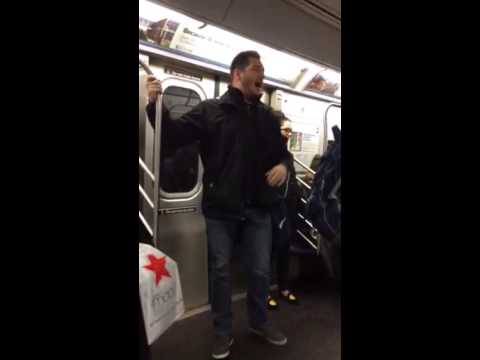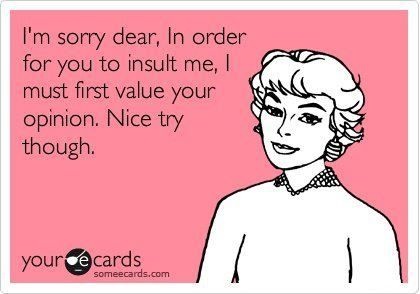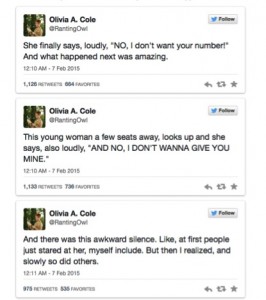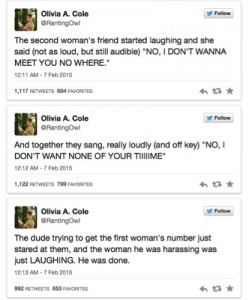Troll – A person who posts inflammatory or inappropriate messages or comments on (the Internet, especially a message board) for the purpose of upsetting other users and provoking a response.
Since Japanese company Sharpe released the first camera phone in 2000 a revolution has occurred in the way we document our lives, writes Verandah Magazine’s Social Media columnist Lucy Burchley.
The intervening 14 years has seen the rise of social media, the selfie and citizen journalism. We now record what we eat, what we think and the events around us to share with our respective networks. While this might seem like the attention seeking antics of a group of narcissists I believe that we can plot a direct link between the rise of camera phones (and social media) to the uncovering of a deep seeded problem in our society.
In the last few years’ public transport seems to have become the chosen platform for racial and sexual abuse. I’m thinking along the lines of the tirade launched upon ABC journalist Jeremy Fernandez while travelling with his daughter on a Sydney bus in 2013. Mr Fernandez took to his twitter page to describe the unprovoked verbal attack, which he coined as his ‘Rosa Parks moment’, referring to African-American civil rights activist who was arrested in 1955 after refusing to give up her seat to a white passenger. A fellow female passenger on Mr Fernandez’s bus launched a verbal tirade against, calling him a “black c—“ and telling him to “go back to my own country.”
Unfortunately these stories are all too common and as these accounts of abuse become more publicised so to are the unique ways commuters on public transport (and people in their everyday lives) are developing to deal with the onslaught of hate. Over the last few weeks’ two stories in particular have appeared on social media, in which travellers use song to shut down or drown out real life Tolls.
First there was Rob Maiale, a copy writer and actor who sang ‘I’ve Got a Golden Ticket’ from Willy Wonka at the top of his voice to drown out the anti-gay rantings of a religious fanatic on the New York Subway.
Check out the video here:
https://www.youtube.com/watch?v=azZc4heoEGs#nf
And then earlier this month Chicago based writer Olivia Cole was riding the train to work when a man began aggressively harassing another female passenger for her phone number. How the other passengers reacted was brilliant and Olivia shared it with her followers via Twitter.
So what’s the take away from this situation? If in doubt sing ‘No Scrubs’ by 90’s girl band TLC to your harasser and hope that the other passengers know the words. (You can learn them here: https://www.youtube.com/watch?v=FrLequ6dUdM)
While trolls are an accepted part of ‘online’ life and unfortunately I am not talking about the dolls with multi-coloured hair and jewels in their bellybuttons, we sometimes forget that abuse in all its many forms happens offline as well. This issue is far ranging and complex and I am by no means an expert but I feel that this behaviour reflects an acceptance of abuse in our society at large. How often do we stand by while people around us are targeted? Fearful to step in for fear that we might in turn be abused.
So maybe it is time for us to legislate a national repertoire of songs that can be used to let abusers know that their victims are not alone. Such a list might include Respect by Aretha Franklyn, Independent Woman by Destiny’s child or Shake It Off by Taylor Swift.
Regardless of how we as a society choose to handle online or offline trolling social media continues to play in important part in capturing these random acts of bravery and disseminating the message that victims don’t have to stand alone and we don’t have to accept abuse.
To contact Lucy Birchely for Social Media consultations go to her website: lucybirchley.com








